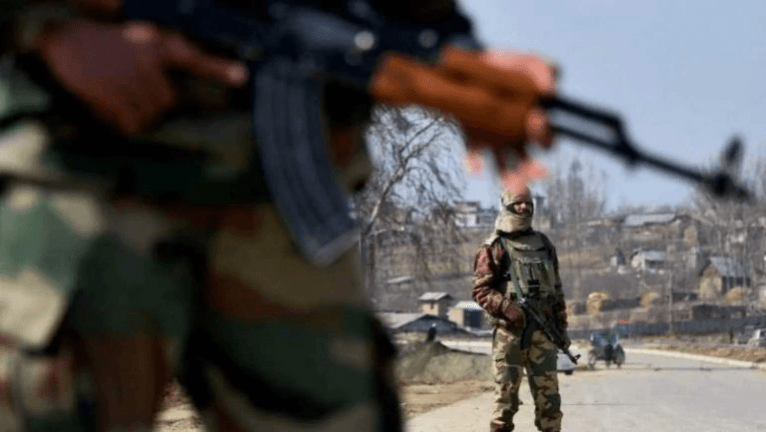
India has rejected claims of human rights violations in Jammu and Kashmir following accusations made by a recent United Nations report. The report says civilian casualties in 2018 were the highest in a decade.
"It is a continuation of the earlier false and motivated narrative," said Ministry of External Affairs (MEA) spokesperson Raveesh Kumar in a statement. "The assertions by the UN body are in violation of India's sovereignty and territorial integrity and ignore the core issue of cross-border terrorism."
Accusing Indian security officials of using arbitrary detentions, the report released by the UN Human Rights Council called for a probe into its findings.
India claimed that the report differs strikingly to the position exhibited by the UN Security Council following the Pulwama terror attack in February. Upon India's request, Masood Azhar, leader of the militant group Jaish-e-Mohammed (JeM), was declared a global terrorist after the attack.
Kumar said that despite the terrorist leaders and organisations sanctioned by the UN, the report deliberately underplays the militants as 'armed groups.'
He condemned the UN body for its 'failure' to recognise the independent judiciary, human rights institutions and other mechanisms in the state that "safeguard, protect and promote constitutionally guaranteed fundamental rights to all citizens of India."
The Indian official also questioned the Office of the United Nations High Commissioner for Human Rights (OHCHR), for publishing the report as well as its commitments with the "larger approach of the United Nations."
Human Rights Violations
Stating that 160 civilians were killed in 2018, the report cited data collected by Jammu and Kashmir Coalition of Civil Society (JKCCS). It also stated that around 586 people, including 267 militants and 159 Indian security personnel, were killed due to the violent conflict in the region. The number is the highest since 2008.
Official data published by the Indian Union Ministry for Home Affairs was also accused by UN of deliberately stating "lower casualty figures, citing 37 civilians, 238 terrorists and 86 security personnel killed in the 11 months up to 2 December 2018."
The report asked India to investigate the deaths of 98 civilians following the killing of Hizbul Mujahideen militant commander Burhan Wani in 2016. The Kashmir valley plunged into violence after Wani was killed in an encounter with Indian security forces. The clashes between security forces and mobs resulted in a large number of deaths and left nearly 4,000 people permanently blinded.
Kashmir was shut down and a high alert was issued on Monday on the occasion of Wani's third death anniversary.
The report also criticised the contentious Armed Forces Special Powers Act (AFSPA) and alleged that the legal provisions for Indian security forces in Kashmir protect the perpetrators. "There has not been a single prosecution of armed forces personnel granted by the central government in a civilian court," said the report.
Questioning the "virtually non-existent" human rights in the valley, it asked for a repeal of AFSPA.
The rise of hate crimes against Kashmiris in the aftermath of the Pulwama attack was also mentioned in the report and the Indian administration was called to take more measures to prevent communal violence.

















